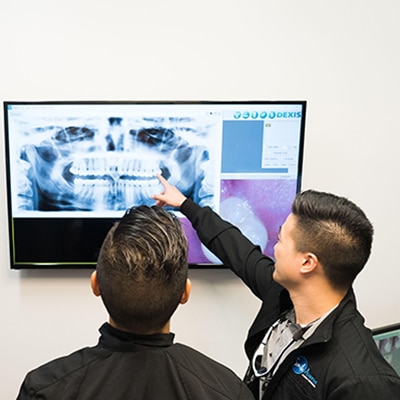
If you have an implant and are experiencing complications, it’s crucial to understand why it may be failing and what options are available. In this blog post, we will explore the common reasons for implant failure and the potential steps you can take to address the issue. Understanding the causes and solutions for implant failure can help you make informed decisions about your health and well-being.
What is the most common dental implant failure?
The leading cause of dental implant failure is infection, which can occur at any point during implant therapy and result in implant failures. Peri-implantitis refers to an inflammatory response with bone loss in the soft tissues surrounding implants. Experiencing implant failure can be disheartening for individuals who have undergone the process. Understanding the reasons behind the failure and knowing the steps to address the issue is essential.
Several factors can contribute to implant failure, including but not limited to:
Poor Bone Quality or Quantity
The lack of sufficient bone to support the implant can lead to its failure. In such cases, bone grafting may be recommended to improve the chances of successful implantation.
Infection
Infections can significantly impact the success of an implant. Proper oral hygiene and regular dental check-ups are crucial to prevent infections that could lead to implant failure.
Failed Osseointegration
Osseointegration is the process by which the implant fuses with the jawbone. If this process is hindered for any reason, it can result in implant failure.
Implant Overloading
Excessive pressure or force placed on the implant, especially during the healing period, can lead to failure.
Medical Conditions and Lifestyle Choices
Certain medical conditions such as diabetes and habits like smoking can increase the risk of implant failure.
What can you do about a failing implant?
The causes and treatment of dental implant failure depend on the timing and reasons for the failure. Typically, an oral surgeon will extract the implant, assess if there is a need for gum or bone treatment, and then facilitate healing of the area. Dr. Patrick Vuong, a skilled dental surgeon in Katy, TX, can identify the reason for implant failure and guide on addressing it. If you are concerned about potential implant failure, it is important to seek advice from your dental provider. They will perform a comprehensive evaluation and recommend the most suitable next steps, which may involve:
Imaging Tests
X-rays and CT scans can provide detailed images to help identify any potential issues with the implant.
Treatment Plan
Based on the findings, your dental professional will devise a treatment plan tailored to your specific situation. This may involve addressing underlying causes such as infection or bone loss.
Possible Re-implantation
In some cases, the failing implant may need to be removed, and a new implant can be placed once the underlying issues have been resolved.
Ongoing Oral Care
Maintaining good oral hygiene and following the recommendations of your dental professional are vital for the success of any implant procedure.
Implant failure can be a challenging setback, but with the right approach and professional guidance, it can be addressed effectively. By understanding the potential reasons for implant failure and taking proactive steps, you can work towards restoring the function and aesthetics of your smile.
Remember, early intervention and regular dental care are key to addressing implant concerns and ensuring the best outcome for your oral health.











